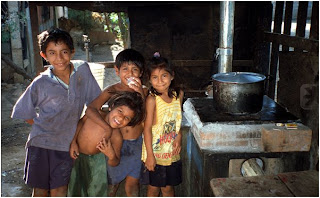Brussels Airlines has started an initiative called as “Carbon Offset Programme” in association with CO2Logic, which provides its travelers the prospect to compensate for the CO2 emissions of their flight by making a small financial contribution which will be used to support the woodstove project in Uganda, as per a report on Brussels Airlines. The Project aspires to guard the trees, reduce deforestation and ensure better living conditions for the inhabitants by plummeting their exposure to toxics emitted from traditional stoves.
The passengers can calculate their CO2 footprint based on international norms and offset the emissions by paying money. The contributions will go exclusively towards supporting an internationally recognised clean cookstoves project in Africa that helps to reduce CO2 as per Gold Standard which guarantees carbon offset of a high quality. The contributors will be certified with a digital certificate as a proof of their effort.
CO2 compensations are entirely voluntary in nature and do not impact the ticket rates as it is the choice of the traveler to offset his flight. Also, the prices of the offset programme are nominal at around €22 exclusive of VAT per tonne of CO2.
For example, one of the projects that the contributions will go towards is the purchase of ecologically-friendly wood stoves in Uganda for the local population who continue to use wood and charcoal as fuel – a situation which has led to deforestation in the country. With these new efficient stoves, the amount of wood consumed per family can be reduced by nearly 40% and CO2 emissions reduced by 1.4 tonnes per family per year.
The stoves will reduce the impact of toxic smoke fumes which affect the health of women and children in Africa and cause diseases like pneumonia, which accounts for 20 per cent of all child deaths globally, as per the first-ever Acute Respiratory Infections Atlas, published by the World Lung Foundation in November 2010.
Brussels Airlines will cater to its responsibility too in the meantime to reduce emissions by ways of using up all its fuel and reducing the weight of its aircrafts and a lot of other eco-friendly initiatives.
Photo courtesy: Brussels Airlines
Read the full story on: Brussels Airlines Passengers Can Now Offset their CO2 Emissions



















